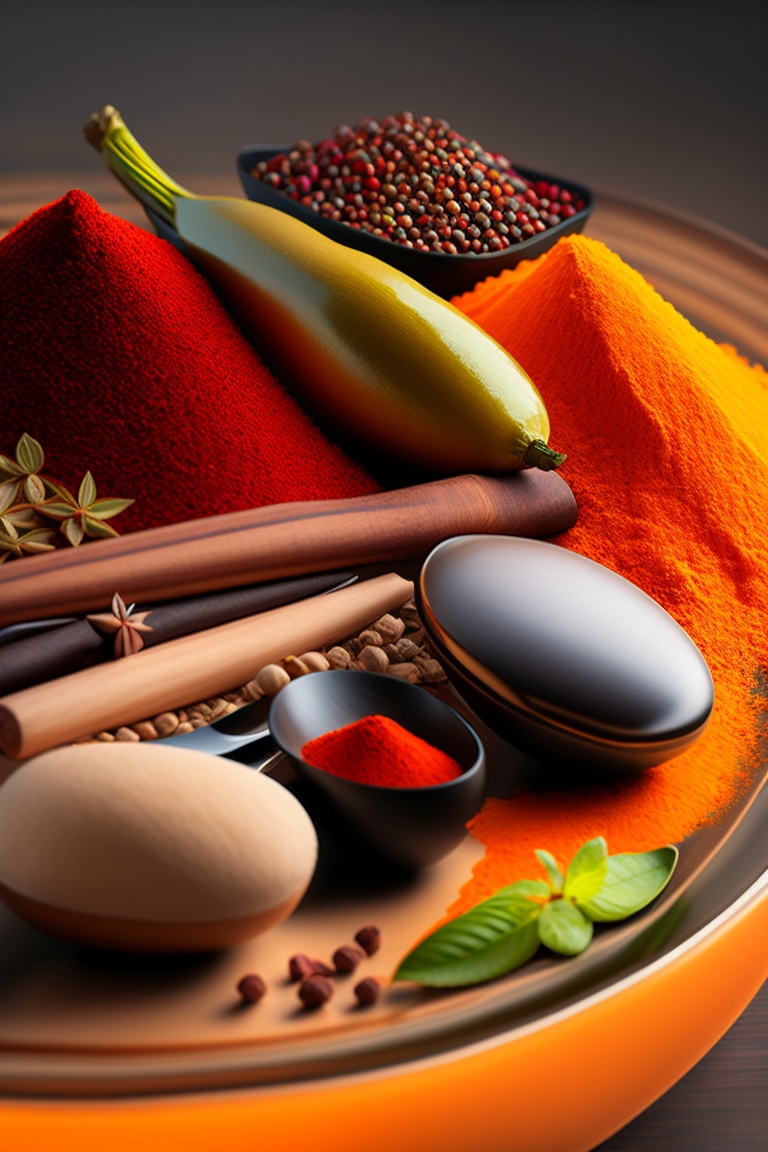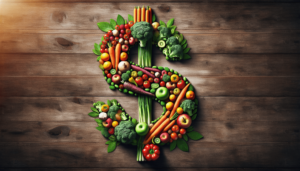Introduction to Organic Spices
Picture the aroma of a freshly baked apple pie wafting through your grandmother’s kitchen. That intoxicating scent, full of warmth and nostalgia, is undeniably comforting. Now imagine that aroma, but exponentially amplified, and you’ve got a whiff of the power of organic spices.
Spices are truly the unsung heroes of the culinary world, turning any bland dish into an epicurean delight. But what if you could boost their magic by a few notches? Welcome to the world of organic spices.
Organic spices are unadulterated gifts from Mother Nature, untainted by synthetic pesticides or genetically modified organisms. They are the underdog superheroes of the food world, flying under the radar, ready to rescue your meals from the clutches of mundanity.
Why Choose Organic Spices?
Superior Flavor
Remember the last time you bit into a homegrown tomato? Remember the explosion of flavor, the juiciness, the taste that made your store-bought tomatoes seem like wax models? That’s the same leap you experience in the world of spices when you switch from regular to organic.
Organic spices are like that unruly kid in a choir who sings louder, more melodically, and with more passion than anyone else. Their flavor and aroma are more potent because of the traditional and natural farming methods used. Think of it as a taste trip back in time, to when spices were first discovered and their full potential was revered.
Environmentally Friendly
Think of choosing organic spices as voting for the planet with your palate. Organic farming doesn’t just preserve the integrity of the spices, but also that of the soil, water, and air. It’s sustainable and environmentally friendly, preventing the contamination of ecosystems with harmful chemicals. So, next time you sprinkle some organic pepper, remember, you’re spicing up your meal and preserving our Earth.
Healthier Choice
Imagine this: there’s a villain named ‘Chemical Pesticides’ wreaking havoc inside your body, destroying harmony and balance. Suddenly, a superhero named ‘Organic Spices’ comes flying in, kicking out the chemicals, and restoring peace. Organic spices are free of harmful additives or preservatives, and are not irradiated, making them a healthier alternative.
Origin and Cultivation of Organic Spices
Each spice has its own passport, carrying stamps from different corners of the globe where it’s grown best. Organic spices are no different, except their passports are more ‘green’. Let’s go on a global trot to discover the homelands of our favorite organic spices.
Organic Turmeric
Our first stop is India, the motherland of turmeric. Known as ‘Indian Saffron’ due to its vibrant yellow color, turmeric is grown in abundance in the Indian states of Tamil Nadu, Andhra Pradesh, and Maharashtra. The warm, humid climate and fertile soil in these regions provide ideal conditions for growing organic turmeric. The spice is cultivated without synthetic fertilizers and pesticides, allowing it to grow naturally while also enhancing its curcumin content, the compound responsible for its potent health benefits. Check out the price on Amazon here.
Organic Cinnamon
Next, we journey to the beautiful island nation of Sri Lanka, the world’s leading producer of high-quality organic cinnamon, particularly the Ceylon variety. Cinnamon loves the wet and tropical climates found here. Cinnamon farms in Sri Lanka, with their rich biodiversity and traditional farming methods, are a testament to sustainable agriculture.
Organic Black Pepper
We’ll find ourselves next in the southern state of Kerala in India, often referred to as the ‘home of black pepper. Kerala’s tropical climate, marked by heavy rains and abundant sunshine, coupled with its rich soil, make it an ideal location for organic pepper cultivation. The pepper vines are grown without any synthetic inputs, and the berries are handpicked and sun-dried, preserving their sharp, spicy flavor.
Organic Ginger
Our spice route takes us to China next, the largest producer of organic ginger. The warm, humid conditions in the Chinese provinces of Shandong and Guangdong are perfect for ginger cultivation. The farms use organic compost and natural pest control methods, ensuring that the ginger grows in a clean and chemical-free environment, leading to a spice that’s aromatic and high in essential oils.
Organic Cloves and Nutmeg
We wrap up our journey in Indonesia, specifically the Maluku Islands, fondly known as the ‘Spice Islands’. It’s the home of organic cloves and nutmeg. The islands’ volcanic soil, along with its tropical climate, provide ideal conditions for growing these spices. Organic farming methods are deeply rooted in the agriculture of these islands, with farmers using natural fertilizers and traditional methods of pest control.
No matter where in the world they originate, organic spices are grown with respect for nature, patience, and a commitment to purity. These spices, free from synthetic inputs and adulteration, are the gems of their native soils, embodying the essence of their homelands in every grain.
Now let’s continue our exploration of these amazing organic spices.
The Journey of Organic Spices
Farm to Table
There’s a charming romance to the journey of organic spices. From the fertile soil on a sunny farm, nurtured without the use of synthetic fertilizers, pesticides, or herbicides, these plants grow in all their natural glory. They are hand-picked at the peak of their maturity, ensuring optimal flavor, and then sun-dried, a process that locks in all their aromatic oils.
Unlike mass-produced spices, which are often rushed through the growing and harvesting process, organic spices are given time – time to grow, time to mature, and time to develop their flavors. Each step in the journey from farm to table is done with the utmost care and respect for the spice, ensuring you get nothing but the best.
Certifying Organic Spices
The process of certifying organic spices is stringent and rigorous. Imagine an overzealous school headmaster meticulously checking every paper, peering over his glasses with a hawk’s precision. That’s how the certification agencies ensure your spice jar is filled to the brim with pure, organic goodness.
From farm inspections to auditing, certification ensures that the spices are grown, harvested, processed, and packaged according to strict organic standards. So, when you buy a jar of certified organic spices, you know you’re getting 100% natural flavor.
A Guide to Popular Organic Spices
Organic Black Pepper
There’s a reason black pepper is called the ‘King of Spices.’ It’s the unpretentious sidekick to nearly every dish, subtly enhancing flavors without ever overshadowing. Organic black pepper takes that humbleness and amplifies it to new heights.
Organic black pepper brings a sharp, mildly spicy depth to your dishes. It’s like the surprise pop in a piece of bubble wrap – understated yet thrilling. Use it in marinades, sprinkle it over salads, or give a final touch to your soups. It’s loaded with antioxidants and has anti-inflammatory properties. Talk about a king that rules with benevolence!
Organic Ginger
If spices had personalities, ginger would be that loud, boisterous friend who’s life of the party. Its robust flavor, a mix of zest and bite, can jazz up any dish. And when it’s organic ginger, the party just got wilder.
Organic ginger is aromatic, pungent, and slightly hotter than regular ginger. It’s like your favorite dance song turned up to max volume. Use it in stir-fries, teas, or desserts, and let it play its refreshing tune. And did I mention, it’s great for digestion and can help fight the flu and common cold? Now that’s a spicy bit of information!
Organic Cloves
Cloves are like the earring in the ‘spice’ lady’s ear – small, but a signature element that completes the look. They bring a warm, sweet, and slightly astringent flavor to the dishes. Organic cloves? They are like diamond studs, small but impactful.
Organic cloves pack a powerful punch of flavor. It’s like having a tiny flavor bomb explode in your mouth. Use them in your biryanis, broths, or baked goods and feel their warm embrace. They are also known for their antiseptic and germicidal properties, helping to fight infections. That’s a diamond of spice, isn’t it?
Organic Nutmeg
Nutmeg is like the secret spice agent – usually undercover, but once revealed, impossible to ignore. It’s sweet, warm, and slightly nutty. Organic nutmeg? It’s the spy who loved me…and my food!
Organic nutmeg, with its sweet and distinctive aroma, is more potent and flavorful. Grate it over your mashed potatoes, custards, or add a pinch to your coffee. It’s like revealing the secret to an exquisite flavor profile. Plus, it helps in digestion and detoxifies the body. Now that’s a secret worth sharing!
Organic Turmeric
Turmeric is like the Queen of England of the spice world – old, revered, and full of wisdom. And organic turmeric is like the Queen armed with a flaming sword, ready to fight off diseases and enhance your food with its powerful flavor.
Organic turmeric isn’t just a spice; it’s a lifestyle. Its unique earthy tone adds a warmth and depth to dishes that regular turmeric simply can’t match. Not to mention its slew of health benefits, from anti-inflammatory properties to boosting immunity, it’s a must-have in your spice rack.
Organic Cinnamon
There’s an old joke – what do you call a baking spice that’s gone to finishing school? Sophisticinnamon! And organic cinnamon is the epitome of this sophistication.
Organic cinnamon is sweet, slightly spicy, and oh-so-warming, the perfect dessert spice. It’s nature’s dessert spice, perfect for your sweet tooth and health. Adding organic cinnamon to your oatmeal, cookies, or warm apple cider not only heightens the flavor but also brings an array of health benefits, like lowering blood sugar levels and reducing heart disease risk.
Organic Paprika
If spices were shoes, organic paprika would be the spicy red stiletto – hot, fiery, and impossible to ignore. It’s the spice that instantly boosts your dish’s personality, taking it from meh to marvelous.
Whether you want to bring a smoky flavor to your barbecued meats or add some zest to your homemade salsa, organic paprika has got you covered. Plus, it’s packed with vitamins A and E, making it a spice that’s as good for your body as it is for your taste buds.
Integrating Organic Spices into Your Daily Routine
Tips for Cooking with Organic Spices
There are two things to remember when cooking with organic spices. First, they are like a feisty grandma; they are strong, potent, and don’t need too much fussing. Second, they are also like a fabulous diva; they don’t like to be rushed. A little goes a long way, and slow cooking helps to release their flavors.
Remember to always add them to your dishes toward the end of the cooking process to preserve their flavor. And be adventurous! Don’t restrict your cinnamon to sweet dishes or your turmeric to curries. Break the rules, surprise your taste buds!
Creating DIY Organic Spice Blends
Creating DIY organic spice blends is like being a kid in a candy store. The possibilities are endless, and every creation is a chance to discover a new favorite. Fancy some Italian cooking? Try mixing organic oregano, basil, thyme, and rosemary. Want to transport your senses to Morocco? Blend organic cumin, coriander, and cinnamon.
Conclusion
So there you have it, folks. Organic spices are the tiny yet powerful wizards of flavor, health, and sustainability. They may seem like a small detail, a simple swap in your kitchen, but their impact is profound. They carry with them the wisdom of traditional farming, the boldness of robust flavors, and the commitment to health and ecology.
Unleash their magic in your kitchen, and trust me, your taste buds, your health, and Mother Earth will thank you!
FAQs
Why are organic spices more expensive?
Just like a handcrafted piece of furniture is more expensive than a mass-produced one, organic spices cost more because they require more labor and care. The attention to detail, the traditional farming methods, the rigorous certification process – all of these contribute to their slightly higher cost. But remember, with organic spices, you get what you pay for – pure, potent, and unadulterated flavor.
Are there any specific recipes to use organic spices?
No rules here, folks! Organic spices can be used in the same way as regular spices, just remember that they pack a stronger punch. So, you may want to use them sparingly initially.
Do organic spices expire?
Organic spices, like their non-organic counterparts, do lose their potency over time but they don’t exactly ‘expire’. To ensure maximum flavor, try to use them within a year. And always store them in a cool, dark place. Your pantry is their best friend!
How can I tell if my spices are really organic?
Look for the certification labels on the packaging. Trustworthy certifications include USDA Organic, EU Organic, India Organic, among others. These labels indicate that the spices have met stringent standards and are truly organic.
Is it worth it to switch to organic spices?
Absolutely! Organic spices offer superior flavor, are healthier, and are more environmentally friendly. They may cost a bit more, but the benefits they offer are priceless. So, are you ready to make the switch?





